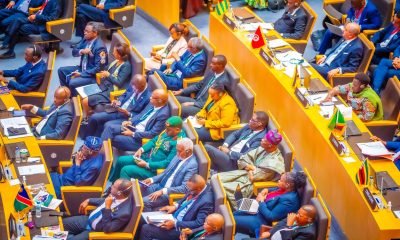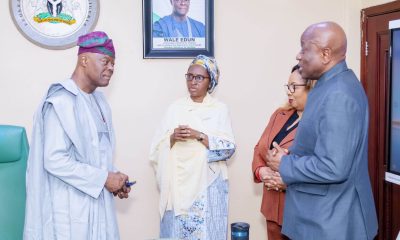Nigeria News
Tinubu’s Govt Vows To Stop Vehicle Smuggling Into Nigeria

President Bola Ahmed Tinubu’s administration is determined to put an end to the unlawful importation of vehicles into the nation as it implements the National Vehicle Registry Policy (VREG).
Naija News reports that VREG consolidates the data of vehicles from various agencies, such as the Nigeria Customs Service, Vehicles Inspection Offices, the Police National Central vehicles data, and the database of the Federal Road Safety Corps (FRSC).
Speaking yesterday at the VREG Zonal Sensitisation campaign in Abuja, Minister of Finance and Coordinating Minister for the Economy, Wale Edun, noted that the initiative would curb customs duty evasion by vehicle importers.
“The Federal Ministry of Finance is saddled with the responsibility of managing the nation’s finances and revenue streams.
“In the midst of dwindling revenue orchestrated by falling oil prices and mono-economy further worsened by revenue leakages from unplugged loopholes such as customs duty payment evasion, it became imperative that government provided effective responses to these issues.
“Furthermore, the absence of a dynamic and centralised platform for national vehicular information, despite Nigeria being the largest importer of vehicles in Africa with an additional 15 million vehicles operational in the country.
“This huge vacuum had sustained the menaces of customs duty evasion, paucity of data for vehicular policy formulation, nationwide vehicle administration for revenue leakages, vehicle theft and vehicle-related crimes, challenges in road traffic regulation enforcement, limited access to credit facilities and ineffective vehicle insurance coverage and monitoring and evaluation,” the Minister said.
He added: “It is worthy to note that since the emergence of VREG in 2021, several benefits of the registry have been achieved amongst which include, utilisation as a tool to mitigate the evasion of customs duty administration.
“Currently, VREG has been able to seamlessly integrate with the critical stakeholders in attendance today and these connections have brought about real-time, dynamic information exchange.”












